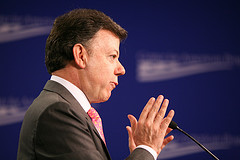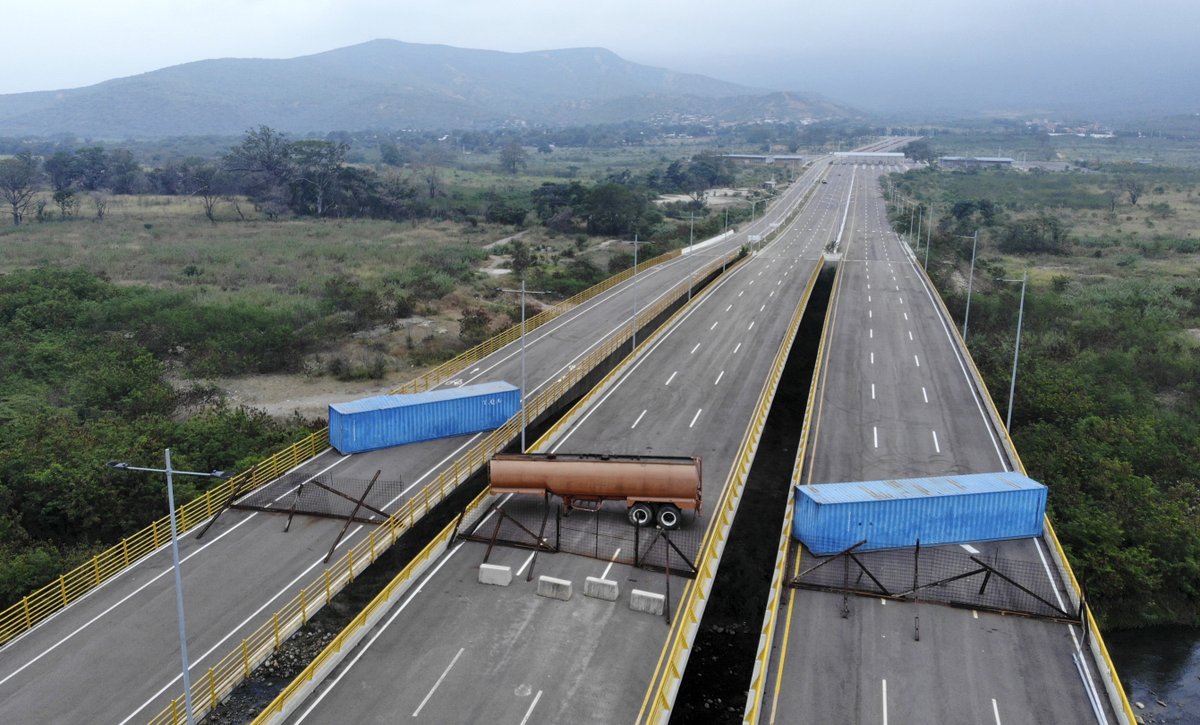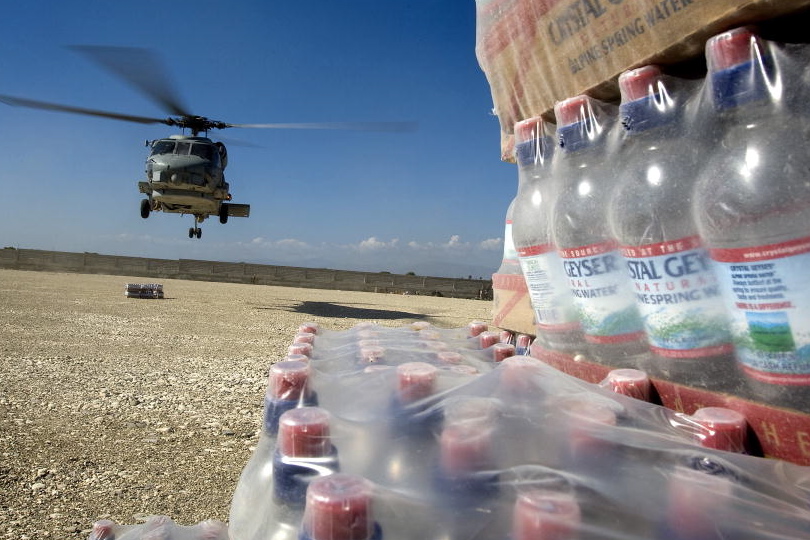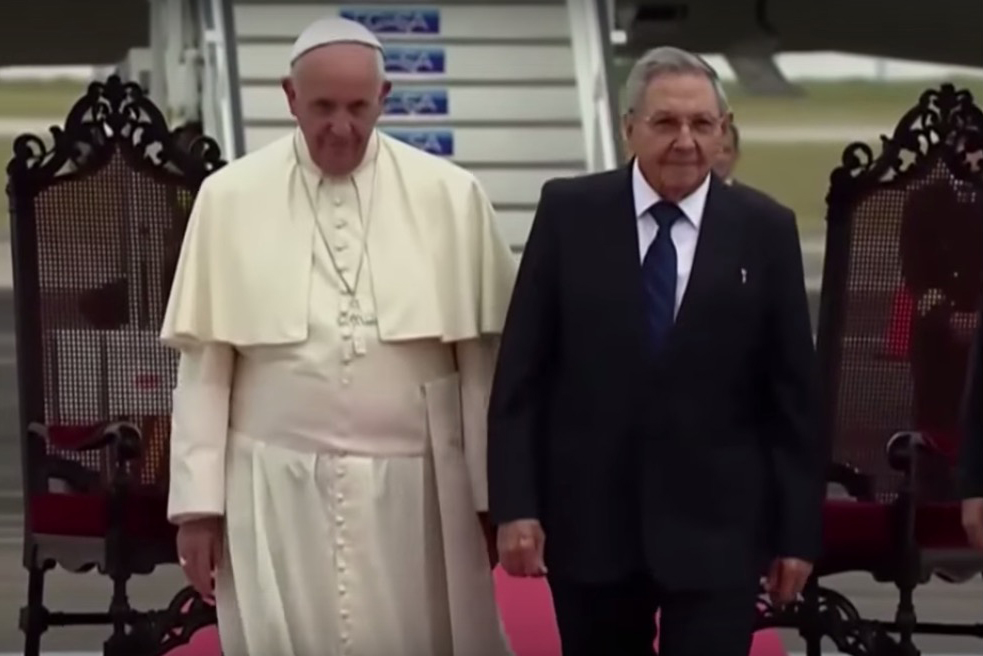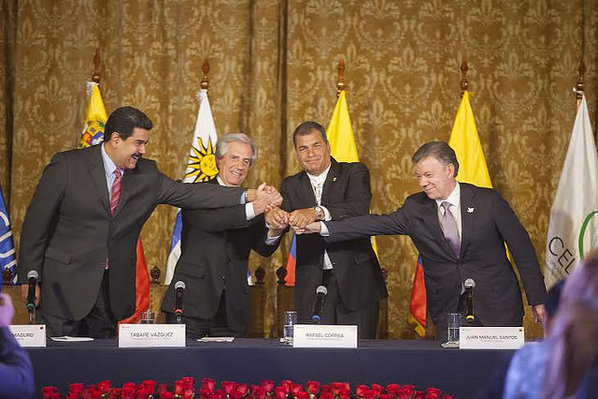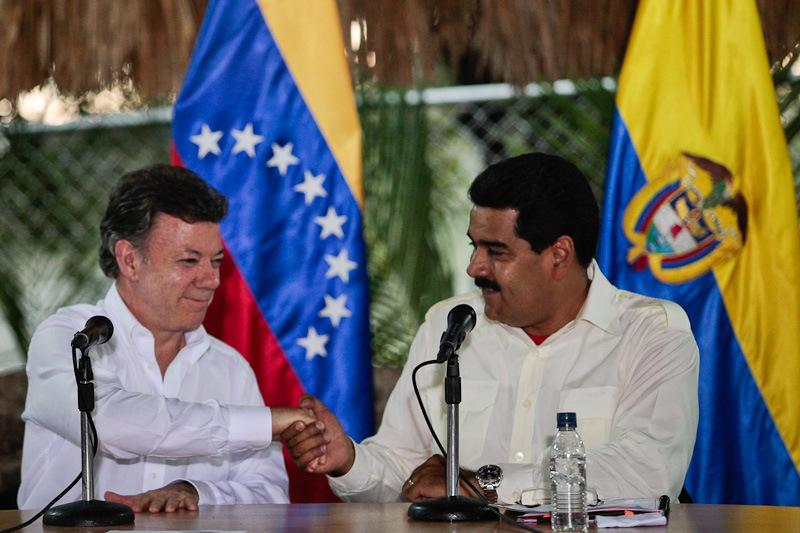
Andes, Colombia, Latin America: Week in Review, Venezuela
Maduro, Santos Reach Agreement to End Border Crisis
September 22, 2015 By Staff
Top Story — The leaders of Colombia and Venezuela met on Monday for the first time since a crisis broke out along their shared border last month, leaving the meeting with a series of agreements aimed at resolving the dispute.
Presidents Juan Manuel Santos, of Colombia, and Nicolás Maduro, of Venezuela, agreed to send back their respective ambassadors to one another after the diplomats were recalled in connection with the crisis, Colombia’s El Tiempo reported. The leaders also agreed to work towards re-opening border crossings closed since Colombian paramilitary gunmen allegedly shot three Venezuelan police officers on Aug. 19.
The resulting Venezuelan security crackdown prompted at least 20,000 Colombians living in Venezuela to leave the country, at least 1,500 of whom were deported for alleged ties to criminal groups. Maduro said he launched the security operation, involving the deployment of some 3,000 troops, in an effort to root out drug traffickers and contraband smugglers.
Santos on Monday said that he acknowledged Maduro’s concern with criminal groups on the border, El Tiempo reported. For his part, Maduro also said the meeting, held in Quito, was successful, and thanked the governments of Ecuador and Uruguay for arranging it.
Headlines from the Western Hemisphere
North America
- Protesters destroyed equipment at a local government office in the capital of Guerrero, Mexico, on Monday, as the one-year anniversary of the disappearance of 43 students in that state approaches this week.
- Guatemala’s ability to politically mobilize and impeach President Otto Pérez Molina has Mexico “jealous,” according to a piece from Vice News that examines Mexico’s failure to incur similar action despite severe corruption and continued dissatisfaction with President Enrique Peña Nieto.
- Republican presidential candidate Jeb Bush attempted to address the topic of immigration reform during a speech to the U.S. Hispanic Chamber of Congress on Monday, but was interrupted by a group of activists.
Caribbean
- Trinidad’s attorney general approved Tuesday the extradition to the United States of Jack Warner, the former vice president of soccer’s world governing body FIFA accused of corruption in a giant bribery scheme.
- Pope Francis’ historic visit to Cuba continued Monday, with trips to the cities of Holguin and Santiago, where he gently pressed Cubans to be open to change, according to The Associated Press.
Central America
- Former gang members and disabled workers are among the employees at one garment factory in El Salvador, where general manager Rodrigo Bolaños intentionally seeks those society deems unhireable not just to foster change in a violent country, but because it makes business sense, according to a piece in The New York Times.
- Nicaragua’s President Daniel Ortega announced a new campaign to stop bullying in schools after a 19 year-old was stabbed to death by another student outside of a school in August.
Andes
- A controversial mining policy in the Peruvian Amazon requires gold miners to obtain legal status and honor environmental regulations — a practice that critics say actually encourages illegal extraction by incentivizing miners to evade bureaucratic barriers, an argument that is evidenced by unchanged rates of deforestation and gold production since the law was instated.
- Rates of violence in Colombia since the July 20 ceasefire agreement between FARC leftist rebels and the Colombian government have plunged to levels not seen since 1975, according to a report released Monday by the Bogotá-based Conflict Analysis Resource Center.
Southern Cone
- The former treasurer of Brazil’s governing Workers’ Party, João Vaccari Neto, was sentenced to 15 years in prison on Monday for taking bribes worth more than $1 million as part of a multi-billion dollar kickback scheme at the partially state-run oil giant Petrobras. Former Petrobras executive Renato Duque was also sentenced, to more than 20 years in prison on corruption charges.
- The Brazilian Real closed on Monday at a record low against the U.S. dollar, a development that could lead to more ratings companies following Standard & Poor’s Sept. 9 decision to downgrade the country’s investment-grade rating to junk status.
- Central Chile experienced a 6.5 magnitude aftershock on Monday, five days after an 8.3-magnitude earthquake and tsunami struck the port city of Coquimbo, claiming 13 lives. No damage or injuries have been reported following Monday’s aftershock.

